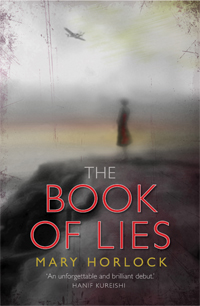The Book of Lies
 The Book of Lies
The Book of Lies
Mary Horlock
Text Publishing 2011
ISBN: 9781921758102
$32.95
288 pp
Mary Horlock twists her yarns expertly into the strands that form the lay of rope that winds its way through a difficult, interconnected past and present on the Island of Guernsey. She tackles aspects of the Nazi occupation in the Second World War and the struggles of a teenage girl more than forty years later. Horlock uses her extensive and intimate knowledge of the island and its people, along with an understanding of teenage angst and imagination, to give us an inspired tale of family frictions, loyalties, courage, deception and betrayal, loss, love and loneliness.
There are aspects of this book that reminded me of Kate Grenville’s Joan Makes History (QUP, 1998), in that Horlock ‘creates’ history out of known and imagined events, without the story seeming in any way to be synthetic. This is a legitimate pursuit, as it brings to the reader imagined detail based on rigorous research. It offers new perspectives and makes often-neglected past events available to us. (For an argument in favour of this view, see Peter Cochrane’s essay, ‘Exploring the historical imagination’, in Griffith Review 31, Text Publishing, autumn 2011.)
The Book of Lies is riveting – despite its 288 pages, I read it in three days. I felt compelled to keep reading as this multi-layered tale grabbed me and pulled me along. The two main strands are the stories told by fifteen-year-old Cathy in the ‘present’ of 1985 and by her uncle, Charlie, recounting, in 1965, events from the war. Misunderstandings and assumptions pepper both stories and bring them together in a surprising way in the last few pages. Placing the protagonists on an island focuses the reader geographically, giving the author more temporal freedom.
The Book of Lies is an interesting title for a work that plays with questions of truth and questionable truth. The author explores how different people have different truths about an event and how this allows for the invention of lies, and she also examines straight-out lies told for reasons the perpetrator may not even be able to fathom; and there are lies which are employed in attempts to save lives and relationships.
Novels need to entertain. However, they are so much better if they also teach us something new and open doors to places we don’t know. The Book of Lies does all of this brilliantly.
© 2011 Daan Spijer
[to receive an email each time a new review is posted, email me: <daan [dot] spijer [at] gmail [dot] com>]
 CLICK HERE to download a formatted PDF of the above post
CLICK HERE to download a formatted PDF of the above post
 See more of Daan Spijer’s writing and his photos at Seventh House Communications
See more of Daan Spijer’s writing and his photos at Seventh House Communications